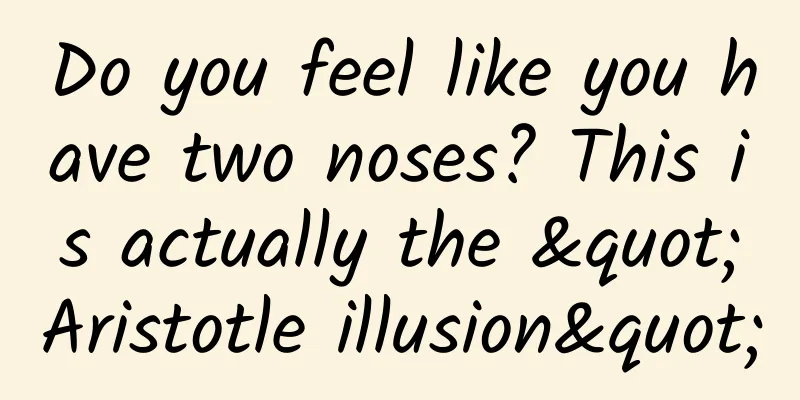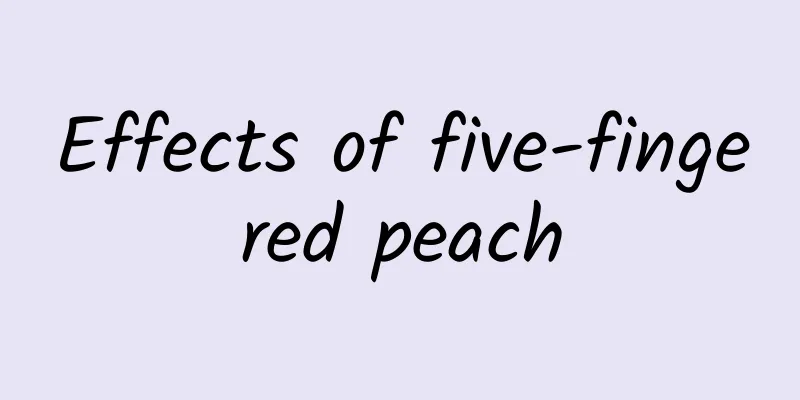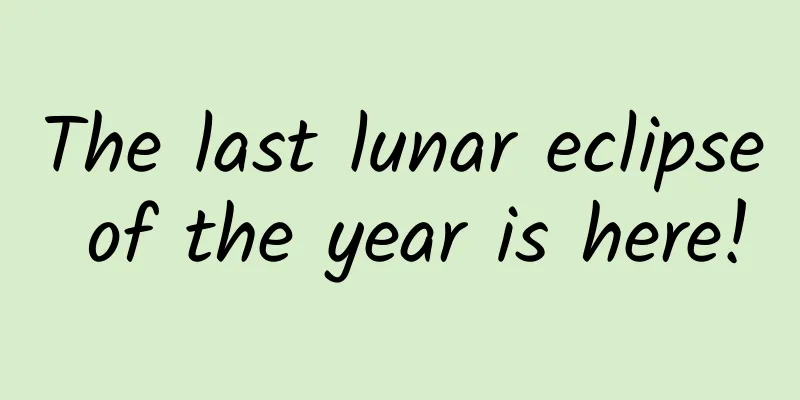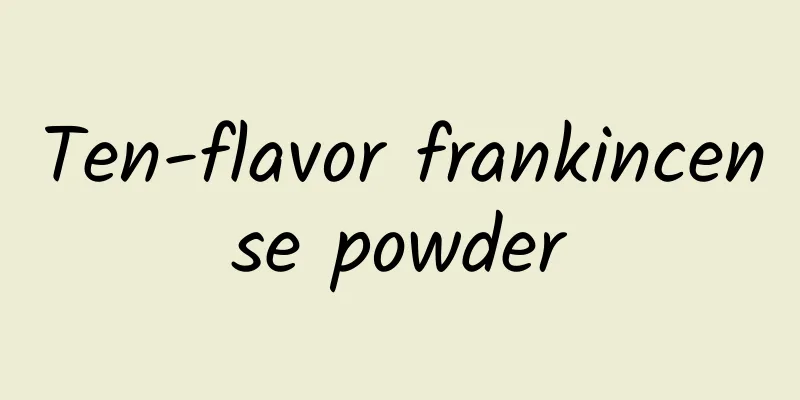Causes of itching all over the body after taking Chinese medicine
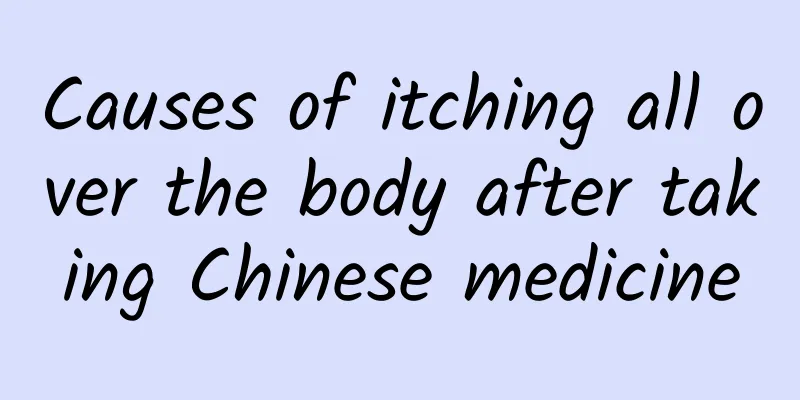
|
Nowadays, people have an increasingly negative view of traditional Chinese medicine, believing that it is just a scam. In fact, Chinese medicine is not what we imagine. Well, simply put, there is a reason why it has existed in China for thousands of years. Some people feel itchy skin after taking Chinese medicine. This situation is usually caused by food allergies and the allergens need to be eliminated in time. Not all Chinese medicines will cause symptoms of itchy skin. So, what are the reasons for itching all over the body after taking Chinese medicine? 1. Side effects Effects unrelated to the therapeutic purpose that occur at therapeutic doses and adverse reactions that are not harmful to the body. For example, angelica has the effect of promoting blood circulation, nourishing blood and moistening the intestines. However, when its effect of nourishing blood and promoting blood circulation is used, moistening the intestines becomes a side effect, which may cause mild diarrhea or It aggravates the symptoms of chronic diarrhea. Changshan has the effect of stopping malaria and vomiting phlegm. When treating malaria, stopping malaria is its therapeutic effect. Vomiting is a side effect; ephedra has the effects of inducing sweating, relieving asthma, promoting diuresis, raising blood pressure, and stimulating the central nervous system. For patients with bronchial asthma, relieving asthma is its therapeutic effect, and other effects become side effects; on the contrary, for patients with hypotension, raising blood pressure is the therapeutic effect, and other effects become side effects. The side effects of traditional Chinese medicine can manifest in many aspects. This is because its composition is complex and its pharmacological effects are diverse. Therefore, its side effects exist, especially when used as a single herb. However, after traditional Chinese medicine is formulated, the side effects can be significantly reduced. 2. Toxic reactions of traditional Chinese medicine Pathological changes in the body's physiology, biochemistry, function and structure caused by excessive dosage or prolonged use of medication. Toxic reactions that occur immediately due to excessive dosage are called acute toxicity, which often damages the circulatory, respiratory and nervous systems. They can also occur gradually due to excessive accumulation of drugs in the body due to long-term use, which is called chronic toxicity, and often damages the functions of the liver, kidneys, hematopoietic organs and endocrine organs. Teratogenicity, carcinogenicity and mutagenicity are special toxic reactions among the chronic toxicity of traditional Chinese medicine. Toxic reactions are generally serious and should be avoided as much as possible. 1. Acute toxic reactions Excessive dosage or misuse of Chinese medicine can cause poisoning. According to modern clinical observations, the incidence of acute poisoning from Chinese medicine due to various reasons is increasing, and fatal cases are not uncommon. Clinical manifestations include: (1) Cardiovascular system: The main manifestations are palpitations, chest tightness, heart palpitations, tachycardia, bradycardia, arrhythmia, conduction block, increased or decreased blood pressure, and death from circulatory failure. (2) Respiratory system: Main manifestations include shortness of breath, coughing and hemoptysis, asthma, dyspnea, acute pulmonary edema, respiratory muscle paralysis or respiratory failure. (3) Nervous system: Main manifestations include numbness of the lips, tongue and limbs, dizziness, headache, irritability, clenched jaw, convulsions, seizures, confusion, coma, constricted or dilated pupils, and even death. (4) Digestive system: Main symptoms include nausea, vomiting, loss of appetite, abdominal distension, abdominal pain, diarrhea, constipation, gastrointestinal bleeding, jaundice, liver enlargement, liver damage, toxic hepatitis, and even death. (5) Urinary system: Main symptoms include low back pain, edema, frequent urination, oliguria or even urinary retention, uremia, acute renal failure and even death. (6) Hematopoietic system: Main manifestations include leukopenia, granulocytopenia, hemolytic anemia, aplastic anemia, purpura, and even death. In addition, toxic reactions caused by direct oral administration or injection of active ingredients extracted from traditional Chinese medicine are more common and more serious. 2. Chronic toxicity The adverse reactions caused by long-term or repeated use of traditional Chinese medicine or Chinese patent medicine are called chronic toxicity or long-term toxicity. Modern clinical medicine has indeed found that some Chinese medicines or Chinese patent medicines can produce chronic toxicity to the body when used repeatedly or for a long time, and the manifestations are also wide-ranging. For example, repeated use of Niuhuang Baolong Pills can cause diarrhea; taking Dahuo Luo Pills for several days can cause upper gastrointestinal bleeding; long-term use of Chinese medicines containing cardiotonic substances such as Huanghua Nerium can lead to digitalis-like cardiotoxicity; continuous use of Yunnan Baiyao can cause thrombocytopenia, skin spots, gingival bleeding or epistaxis, etc. |
<<: Can sesame root protect pregnancy?
>>: Are the genus Viola the same as the genus Viola
Recommend
The efficacy and function of wild chrysanthemum
For the Chinese medicinal material such as wild c...
Are feet a "monitor" of blood sugar? If your feet show these 6 symptoms, it may indicate that your blood sugar is above the standard
The feet can be said to be a magnifying glass for...
World Snow Leopard Day | Isn’t it embarrassing for such a majestic cat to meow like this?
Let’s first listen to how the “embarrassing” big ...
The efficacy, effects and contraindications of nard
What are the functions and effects of nardostachy...
What causes frequent urination?
A normal adult usually urinates 4-6 times a day. ...
What are the effects of Yu Li Ren?
Prunus mume is a traditional Chinese medicinal ma...
If Russia withdraws from the group, how will the International Space Station fly?
This year is a great year for China's manned ...
A toilet from two thousand years ago looks luxurious, but can explode?
Author: Dala Reviewer: Professor Li Chunqing, Arc...
What are the contraindications of Chinese medicine for regulating menstruation?
Menstrual irregularities occur in many female fri...
The efficacy and function of summer
Xiatianwu is a very common Chinese medicinal mate...
The efficacy and function of iron leech
Friends who don’t know about iron leeches will no...
These effects of rejuvenation grass are unknown!
Rejuvenation grass is also known as Huixin grass....
Which is cooler, iced coffee or iced cola? The correct answer is...
On hot days, besides air conditioning, the best t...
The efficacy and function of long-tailed compound ear fern
There are many types of Chinese medicine. When we...
Can black holes devour matter without restraint? Wrong! Learn more about magnetically trapped accretion disks
The vast and deep universe has attracted countles...
